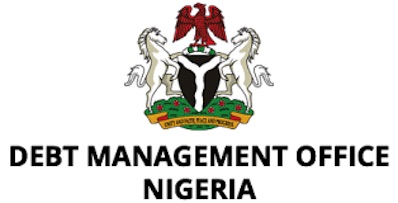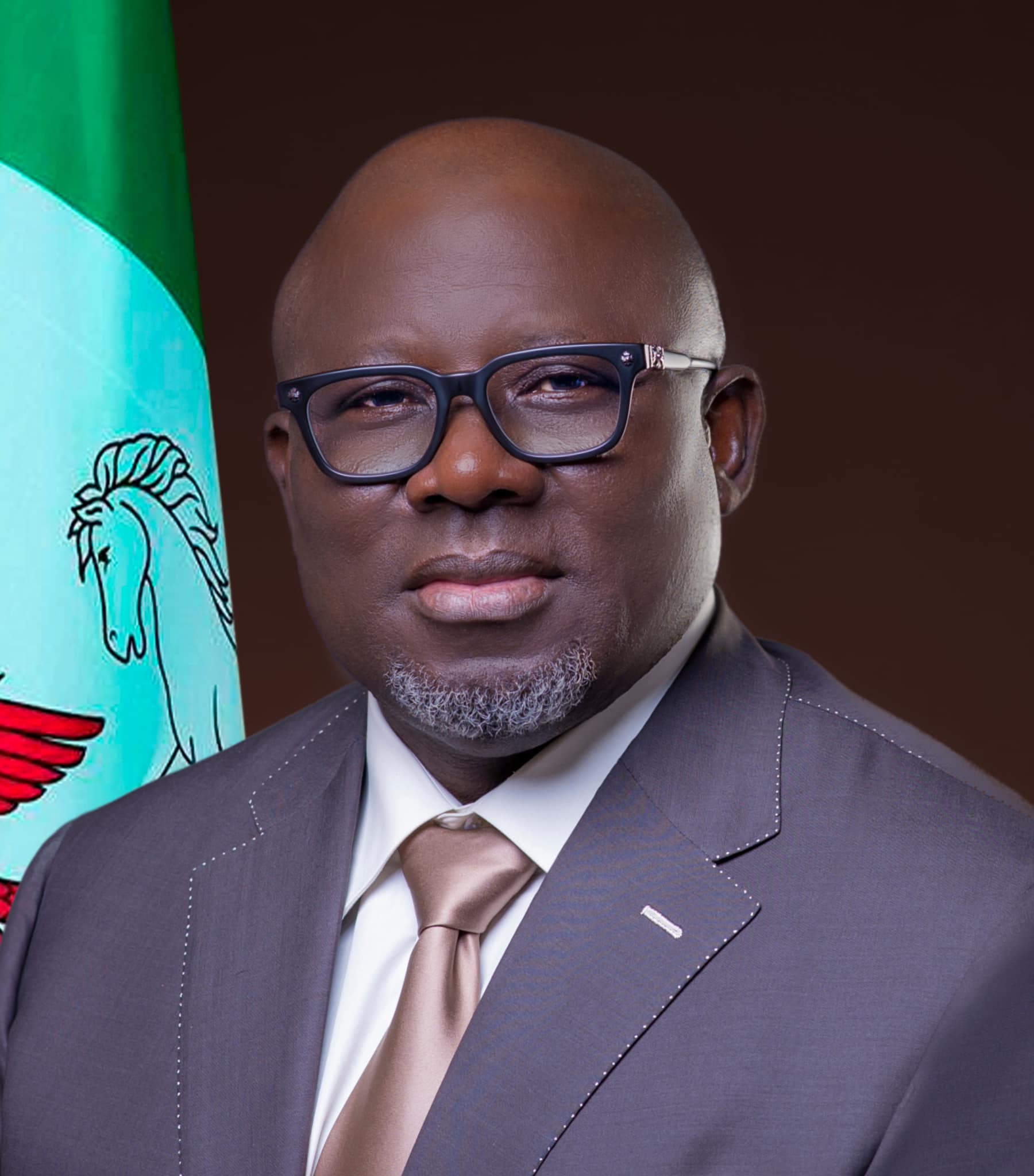BUSINESS
CBN to Support for Investment, Special Economic Zones

By Tony Obiechina
The Central Bank of Nigeria (CBN) has said it will continue to support the Federal Government to implement an investment promotion strategy to facilitate investment flow into the economy,
The CBN Governor, Olayemi Cardoso said this at a two-day Special Economic Zones (SEZs) Annual Meeting on Wednesday in Lagos.
The theme of the meeting was: “Unlocking Opportunities: Harnessing the Power of Nigeria’s Special Economic Zones Scheme.
”Cardoso said the special economic zones were significant to the actualisation of President Bola Tinubu’s economic vision of a $1 trillion economy by 2026.
He said CBN’s mission of ensuring monetary policy and financial system stability was a catalyst for inclusive growth and sustainable economic development critical in ensuring the continued success of the zones.
According to him, the recent efforts geared towards stabilising the exchange rate will assist to attract foreign direct investment necessary to enhance development of the country’s Special Economic Zones.
Cardoso, represented by Dr Kalu Oji, the Deputy Director, Trade and Exchange Department, CBN, said the bank was aware of the challenges faced by the SEZs.
He pledged to tackle the challenges in order to enable them to attract more funds and job opportunities for Nigerians.
Also, Alhaji Bamanga Jada, Managing Director, Oil and Gas Free Zones Authority, described the Economic Zones Scheme as globally recognised instruments used by policy makers to facilitate, attract and scale-up long-term domestic and cross-border investments.
Jada added that it was used to promote and enhance industrialisation, export-oriented investment, diversification, and job creation in most fast-growing economies around the world.
“There is convincing evidence in Nigeria today that the scheme has recorded remarkable progress despite the relatively negative economic climate and the enormous challenges that confront the operators and licensees.
“In specific terms, the Oil and Gas Free Zones Authority, despite the challenges mentioned, has attracted over $24 billion investment.
“The Authority has currently more than 100 efficient licensed companies in the oil and gas free zones under the Authority’s regulation,” he said.
He noted that the result was achieved through the combined efforts and collaboration of the Federal Ministry of Industry, Trade and Investment; Nigeria Custom Service (NCS); Federal Inland Revenue Service, and other stakeholders.
Also, Mr Nabil Saleh, Chairman, Nigeria Economic Zones Association, said globally, economic free trade zones have helped many countries such as Morocco, China, Singapore to boost their manufacturing firms and other sectors.
“In Nigeria, the Special Economic Zones have not done badly. It has generated many direct and indirect jobs to the country, despite the challenges we are going through.
“The Nigeria Free Trade Zones, despite their potential, are still not in the standards we expect yet,” Saleh said.
Commenting, Dr Olufemi Ogunyemi, the Chief Executive Officer, Nigeria Export Processing Zones Authority, said the meeting serves as an opportunity to gain an in-depth understanding of the challenges faced by operators in the various free zones.
Ogunyemi said the event would address the challenges and chart a way forward to ensure that the scheme continues to serve as a tool for sustainable economic growth.
“As the theme of the meeting suggests, it has become imperative that our SEZs be re-engineered, bearing in mind the unfolding of the fourth industrial revolution, the heightened focus on sustainable development, and the new wave of global value chains,” he said.
Oil & Gas
NCDMB set to Attain 100% Local Content in Africa

By Eddy Ochigbo
The Nigerian Content Development Management Board (NCDMB) has reaffirmed its determination to increase the current from 56% to100% local content in Africa between now and next decade, to align with President Ahmed Tinubu’s “Nigeria First” policy, aimed at boosting local production and reducing dependence on imports in critical sectors of national economy.
Director Corporate Services NCDMB, Dr Abdulmalik Halilu who drop the hint during the week at a capacity building workshop for media stakeholders in Abuja, disclosed that NCDMB, was in good stead to attain 100% Local content in less than no time due to impactful steps being taken by the board.
Innovative steps being by the board, be said, were put in place under the leadership of Executive Secretary, Engr. Felix Omatsola Ogbe. While hinging the milestones attained by the board on the establishment of the Nigerian Oil and Gas Industry Development Content Act (NOGICD) – a sole agency of the federal government responsible for driving Nigerian content in the oil and gas industry – Halilu urged Oil and Gas Correspondents to place high premium on the core operations of NCDMB, rather than their day to day reportage of policy matters.The media capacity building workshop themed: The Role of Media and Communications in Sustaining Nigerian Content Development”, challenged the media to deploy its expertise and professionalism to boost Nigeria’s sustained campaign in championing local content development in Africa.
“The media should to do more in the reportage of activities of the board by moving from reporting policy matters, and throw more light on core operations of the Nigerian content performance in the oil and gas industry”, he volunteered.
Meanwhile, NCDMB”s move is to ensure that for every N100 spent in the industry by operators and service companies, N56 is now retained in-country in terms of value addition local assets, goods, expertise to target 70 per cent local content by 2027. The workshop stressed the need for the media to interrogate the board’s activities and keep Nigerians abreast of the ongoing silent revolution in nation’s local content trajectory.
On his part, Dr Obinna Ezeobi, General Manager, Corporate Services, reiterated that the Nigerian content has become so widespread the world over that a good number of African countries are now seeking ways to optimise value from their oil and gas resources, turning to Nigeria’s local implementation as a case study.
Earlier, Mr Azubuike Ishiekwene, Editor-in-Chief of Leadership Newspapers, who delivered a paper on why “Good Journalism is not Enough: Creating Sustainable Income from your Content in Digital Age”, maintained that good journalism is no longer in vogue because of the collapse of traditional newsroom revenue and the under payment and casualisation of Journalists, especially beat reporters. He reasoned that the Journalist as knowledge worker, a trusted interpreter, public educator and a market signaler must live above board because digital age did kill journalism, it killed dependency.
By and large, the media capacity building workshop, among things touched on:
- Formulation and implementation of policies and monitoring its socioeconomic impact;
- Provision of the economic and social capital, necessary for the growth of industries; and
- Provision of enabling business environment to support production and consumption of goods and services by local supply chain.
BUSINESS
DMO Takes Sensitisation on Borrowing Guidelines to Northern States

The Debt Management Office (DMO) said that its World Bank-assisted workshop on borrowing guidelines was designed to intimate subnational entities within Northern Nigeria on proper borrowing ethics.
The Director-General of the DMO, Patience Oniha, said this at the workshop on Borrowing Guidelines organised for top policy makers in Abuja on Tuesday.
He said that the workshop was under the aegis of States Action on Business Enabling Reforms (SABER).
He said it was important to align borrowing practices within the states with that of the Federal Government.
Oniha said that borrowing needed several layers of approvals and debt managers needed to understand why those approvals are required.
“Debt is such an important fiscal variable that involves several stakeholders, that is why we have a diverse group here.
“The objective is that after this workshop, your collaboration with your different states will be stronger.
“We need to keep empowering people with knowledge about creating skills so that work goes on smoothly.
“How do we make the process work? How do we make the subnational governments understand the process of borrowing so that they can raise the funds that they need for development?
“If they have not understood the process, they cannot comply and they cannot raise the funds,” she said.
Oniha said that the idea was to equip the states with all the skills and knowledge they needed, so that each time they want to borrow, they are ready and the process is smooth.
“Ultimately, the expectation is that the funds that they raise will be used for development in the state.”
She commended the World Bank for its interest in activities around public debt management in Nigeria.
“Debt is such an important fiscal variable that we cannot stop talking about it. We must get it right to make it sustainable.
“You can see what has happened to countries that have had to restructure their debts, the problems they went through; the downgrading by the international debt rating agencies; and their inability to borrow.
“Because debt is important, there are laws around borrowing. You want the borrowing process to be transparent, so it is not just one person that took the decision.
“The purpose has to be clear; the loan has to be properly documented; it should be monitored, it should be reported so that you can service it.
“When you do not service it, the consequences are not good. So, let us talk about debt sustainability. How will you know what to do? How will you know when to stop?” Oniha queried.
The Acting Head of Service, Federal Capital Territory (FCT), Nancy Nathan, described the workshop as an intersection of opportunity and responsibility.
Nathan said that the workshop was tied to equipping states and the FCT with the knowledge and tools necessary to navigate the complexity of the borrowing process
According to her, in a rapidly evolving economic landscape, access to finance is not just a necessity but a critical enabler for development.
“This workshop is aimed to demystify the borrowing process and clarify documentation requirements.
“It will empower our top policymakers to make informed decisions that will ultimately enhance our capacity to meet the financial needs of our respective states.
“As we embark on this journey of learning and collaboration, let us engage openly, share our insights, and push past limits that will drive our collective success,” Nathan said.
BUSINESS
Oborevwori Signs N1.729trn 2026 Budget, Three Other Bills into Law

From Francis Sadhere, Delta
Delta State Governor, Sheriff Oborevwori on Tuesday signed the 2026 Appropriation Bill of N1.729 trillion, tagged “Budget of Accelerating the MORE Agenda,” alongside three other key bills passed by the Delta State House of Assembly into law.
The assent paves the way for accelerated development, improved security and strengthened social welfare across the state.
The three additional laws are the Delta State Social Investment Programme Law, the Delta State Colleges of Education Law, 2025, and the Delta State Anti-Terrorism and Anti-Cultism (Amendment) Law, 2025.
Speaking during the signing ceremony, Governor Oborevwori described the 2026 budget as “not just a budget of figures, but a budget of vision, action and expected deliverables for the next twelve months,” assuring that the state would hit the ground running in 2026 to fast-track development across critical sectors.
The N1,729,881,208,779 budget represents an increase of over 70 per cent compared to the 2025 budget. The Governor said the estimate, though ambitious, was achievable, noting that 70 per cent of the budget is allocated to capital expenditure, while 30 per cent is for recurrent spending. According to him, the spending plan reflects his administration’s commitment to infrastructure-led growth and sustainable development.
Oborevwori said that in 2025, the state intensified investments in infrastructure, security, fiscal discipline and revenue generation, resulting in improved internally generated revenue without placing additional burdens on citizens. He noted that these gains underscore the success of the administration’s reforms and its resolve to further strengthen the state’s economy.
Explaining the significance of the accompanying laws, the Governor said the Social Investment Programme Law provides a legal framework for equitable, grassroots-focused access to resources and services, especially for vulnerable and underserved populations, without discrimination.
He added that the Colleges of Education Law, 2025, standardised the operations of state-owned colleges of education, enabled them to award Nigerian Certificate in Education (NCE) and education degrees concurrently, and expanded their capacity to train more qualified teachers.
On security, Oborevwori said the Anti-Terrorism and Anti-Cultism (Amendment) Law strengthens the legal framework to tackle terrorism, cultism and related crimes, bringing state laws in line with contemporary security realities.
The Governor commended the Speaker, leadership and members of the Delta State House of Assembly, as well as the Clerk and staff of the House, for the timely passage of the budget and other bills, noting the strong synergy between the executive and legislature. He also thanked stakeholders, cabinet members, civil servants and citizens for their contributions, while wishing Deltans a Merry Christmas and a prosperous New Year.
Earlier, Speaker of the Delta State House of Assembly, Rt. Hon. Emomotimi Guwor, said the passage of the four bills followed rigorous legislative engagement, wide consultations and thorough scrutiny in line with the Assembly’s constitutional responsibilities.
Guwor explained that the Social Investment Programme Law institutionalized social intervention initiatives aimed at protecting vulnerable citizens and promoting inclusive growth and social justice. He said the Colleges of Education Law, 2025, establishes a uniform framework to enhance the quality and efficiency of teacher education and reduce disparities among state-owned colleges.
He added that the Anti-Terrorism and Anti-Cultism (Amendment) Law addresses emerging security challenges and corrects gaps in the principal legislation, including the absence of a clear definition of cultism.
On the 2026 Appropriation Law, the Speaker said the House scrutinised the budget sector-by-sector in line with the MORE Agenda before passing the N1.729 trillion estimate.
According to him, the assent to the bills further highlights the cordial and productive relationship between the legislature and the executive, driven by a shared vision for a peaceful, secure and prosperous Delta State, and will significantly advance good governance and socio-economic development in the state.

















